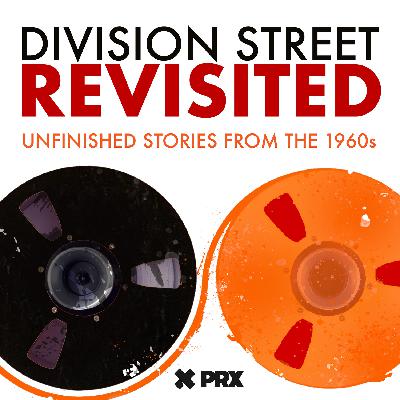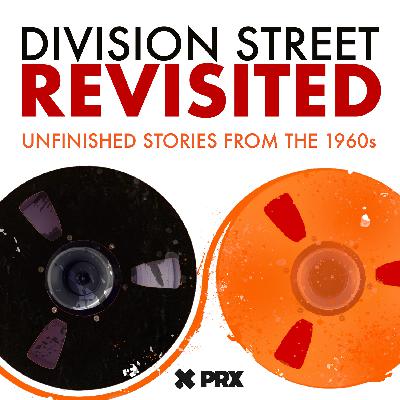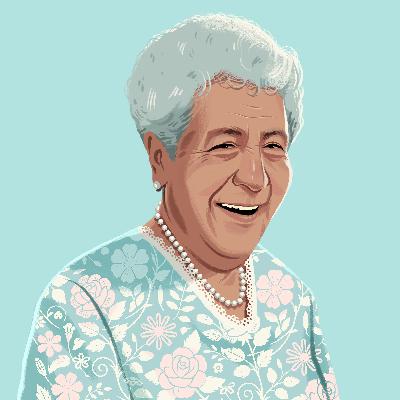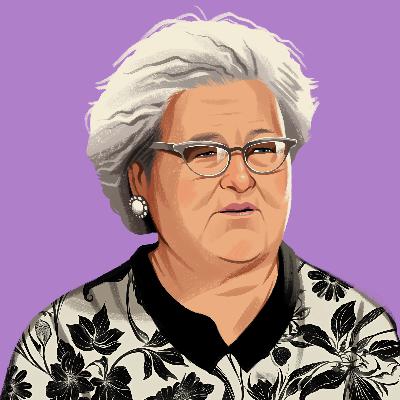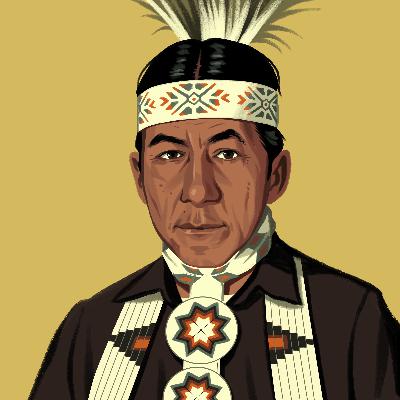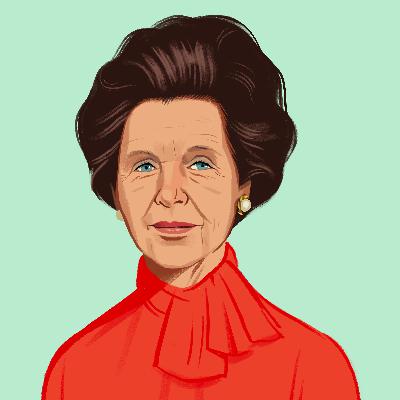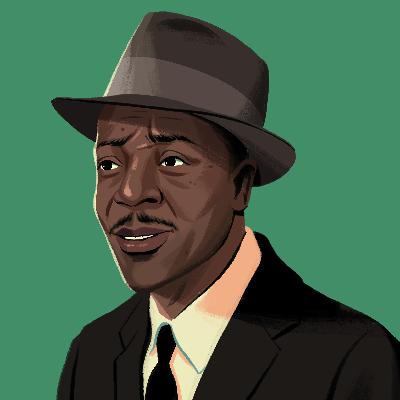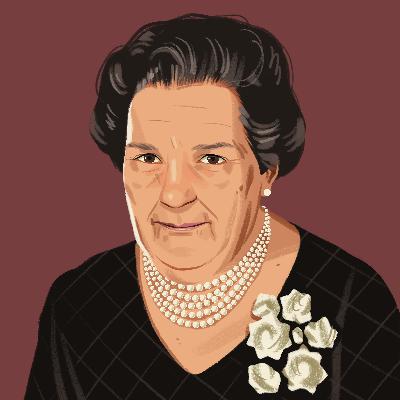Discover Division Street Revisited
Division Street Revisited

Division Street Revisited
Author: Mary Schmich
Subscribed: 38Played: 389Subscribe
Share
© 2024-2025
Description
Pulitzer Prize winner Mary Schmich traces the lives of seven people in Studs Terkel’s first book of oral history: A Black public school janitor; a Lithuanian tavern owner; an Appalachian mother of 15; a closeted gay actor; a Native American activist; a Black labor leader; and a prominent white woman in Chicago high society. What happened to them? To their children? To their dreams?
10 Episodes
Reverse
Follow now and get the trailer upon release.
Pulitzer Prize winner Mary Schmich takes a deeper look at the lives of seven people featured in Studs Terkel’s first book of oral history. They include a Black public school janitor; a Lithuanian tavern owner; an Appalachian mother of 15; a closeted gay actor; a Native American activist; a Black labor leader; and a prominent white woman in Chicago high society. What happened to them? To their children? To their dreams? And what has changed from their time in the 1960s to today? Our series launches Monday, Jan. 27, 2025, and drops every Tuesday for six weeks thereafter.
Witty, outspoken Myra Alexander was 54 years old when she met Chicago radio host Studs Terkel on a train to the 1963 March on Washington and Martin Luther King’s “I Have a Dream” speech. Studs included Myra in a book of interviews he published called Division Street: America.Her family had warned her about the trip: “Oh grandmother, you’re too old for that!” But Myra, a janitor in Chicago public schools, refused to soft-pedal the injustices that Black people like her endured. She insisted, “You’re never too old to be free." Now, Pulitzer Prize-winning writer Mary Schmich asks: What happened to Myra as she went on in her life? What about her kids and grandkids? How can their lives help us understand our lives?Executive Producers: Melissa Harris and Mary SchmichWriter/Host: Mary SchmichProducer: Bill HealyEditors: Cate Cahan and Mark JacobSound Designer/Audio Engineer: Libby LussenhopAssociate Producer/Dialogue Editor: Chijioke WilliamsMusic Director/Composer: Chris WalzFor more information, visit divisionstreetrevisited.com.
In the 1960s, society’s hostility toward gay people could be dangerous. That was the reality for Bill Koza, an actor from Chicago’s South Side. While Bill had a fulfilling life in the suburban dinner theater scene, he hid his authentic self from his family. But Bill did sit for a groundbreaking interview with Studs Terkel – under an assumed name. Decades after Bill’s death, his friends and relatives take stock of how much has changed for LGBTQ+ people since his time.Executive Producers: Melissa Harris and Mary SchmichWriter/Host: Mary SchmichProducer: Bill HealyEditors: Cate Cahan and Mark JacobSound Designer/Audio Engineer: Libby LussenhopAssociate Producer/Dialogue Editor: Chijioke WilliamsMusic Director/Composer: Chris WalzFor more information, visit divisionstreetrevisited.com.
When she was just 12 years old, Della Reuther traveled alone to Chicago in winter with 65 cents in her pocket. This is the story of a woman who never let go of that grit and audacity. As a young woman, she fought to organize a union for women working in the slaughterhouses. She protested against nuclear weapons and the Vietnam War. Della ran a neighborhood tavern for decades, until the warmth of the west drew her to Phoenix. Della’s granddaughter Holly admires her strength. Della’s son Mike looks back on her activism and determination, and admits Della was right all along.Executive Producers: Melissa Harris and Mary SchmichWriter/Host: Mary SchmichProducer: Bill HealyEditors: Cate Cahan and Mark JacobSound Designer/Audio Engineer: Libby LussenhopAssociate Producer/Dialogue Editor: Chijioke WilliamsMusic Director/Composer: Chris WalzFor more information, visit divisionstreetrevisited.com.
Ben Bearskin was born on the Winnebago reservation in Nebraska, but he didn’t stay there. Instead, he moved to the big, loud, bustling city of Chicago, where he became a leader in his Native American community. Ben worked hard to live deeply in the world of his ancestors and in the modern, fast-paced city. He helped establish the American Indian Center in Chicago, and made sure it was a place that treasured Native culture. Near the end of his life, Ben moved back to the reservation, and eventually all five of his children found their way there too.Executive Producers: Melissa Harris and Mary SchmichWriter/Host: Mary SchmichProducer: Bill HealyEditors: Cate Cahan and Mark JacobSound Designer/Audio Engineer: Libby LussenhopAssociate Producer/Dialogue Editor: Chijioke WilliamsMusic Director/Composer: Chris WalzFor more information, visit divisionstreetrevisited.com.
At a time when women’s opportunities were severely limited, Mary Ward Wolkonsky used her wealth and intelligence to make Chicago more cosmopolitan. But the times and the rules of her husbands' corporate jobs limited Mary’s work to volunteer boards, not the boardroom. Those who knew Mary point to her vision and forceful character, and also to her drive to improve the lives of women everywhere.Executive Producers: Melissa Harris and Mary SchmichWriter/Host: Mary SchmichProducer: Bill HealyEditors: Cate Cahan and Mark JacobSound Designer/Audio Engineer: Libby LussenhopAssociate Producer/Dialogue Editor: Chijioke WilliamsMusic Director/Composer: Chris WalzFor more information, visit divisionstreetrevisited.com.
Leon Beverly came to Chicago as a child, in the first wave of the Great Migration of Black Americans moving up from the South. He established himself in the hog kill department at the Chicago Stockyards and quickly became a leader in the union. Leon was known for fixing problems – for co-workers, neighbors and friends, though he struggled to fix his own. He was also a piano player who believed in the power of music to create hope. Leon’s legacy is strong within his children, including a daughter who serves as a board member of the Chicago Teachers Union.Executive Producers: Melissa Harris and Mary SchmichWriter/Host: Mary SchmichProducer: Bill HealyEditors: Cate Cahan and Mark JacobSound Designer/Audio Engineer: Libby LussenhopAssociate Producer/Dialogue Editor: Chijioke WilliamsMusic Director/Composer: Chris WalzFor more information, visit divisionstreetrevisited.com.
Some families, no matter how much they struggle, manage to stick together. Blanche Gates, a widowed Kentucky mother of 15, led one such family. In the 1960s, when coal jobs in Kentucky got scarce, Blanche and some of her sons joined a growing diaspora of Appalachians headed to Chicago. There, in a neighborhood nicknamed Hillbilly Heaven, Blanche made sure her children knew her deepest values: Work and family. One of Blanche’s children later returned to Kentucky, where we met some family members who remained in coal mining. Others spread far and wide, still holding on to the values Blanche had held so dear.Executive Producers: Melissa Harris and Mary SchmichWriter/Host: Mary SchmichProducer: Bill HealyEditors: Cate Cahan and Mark JacobSound Designer/Audio Engineer: Libby LussenhopAssociate Producer/Dialogue Editor: Chijioke WilliamsMusic Director/Composer: Chris WalzFor more information, visit divisionstreetrevisited.com.
This week, we're sharing an episode of the Nieman Storyboard podcast which features Mary Schmich.Schmich has won the Pulitzer Prize and the Studs Terkel Award for her work as a columnist at the Chicago Tribune. She grew up in Georgia and Arizona as the oldest of eight children, and she graduated from Pomona College and attended journalism school at Stanford. From 1985 until 2021, she worked at the Chicago Tribune, where she was a features writer, a national correspondent and, for 29 years, a columnist. "Over the years, I cultivated three essential mantras, which [were]: Panic is my muse. Deadlines crowd out doubt. It always gets done," Schmich said. Get the full show notes and reading list: https://niemanstoryboard.org/2025/04/24/mary-schmich-podcasts-division-street-revisited/Show creditsHosted and produced by Mark ArmstrongAssociate producer: Marina LeighEpisode editor: Kelly ArajaAudience editor: Adriana LacyPromotional support: Ellen TuttleOperational support: Paul Plutnicki, Peter CanovaNieman Foundation curator: Ann Marie LipinskiDeputy curator: Henry ChuMusic: “Golden Grass,” by Blue Dot Sessions (www.sessions.blue)Cover design by Adriana LacyNieman Storyboard is presented by the Nieman Foundation for Journalism at Harvard.Follow Nieman StoryboardApple PodcastsSpotifyAmazon MusicRSS Feed


